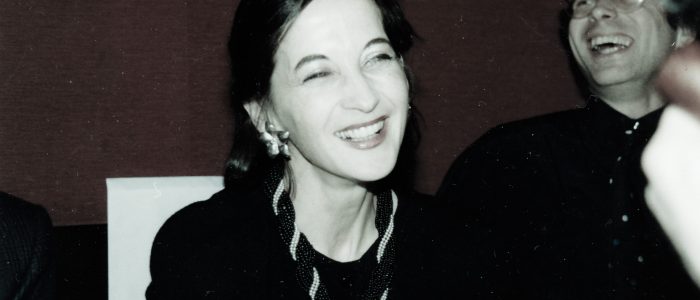National Culture in the Age of Globalization – One World – Many Theatres
National Culture in the Age of Globalization
One World – Many Theatres
Mister Chairman
Ladies and Gentlemen
Dear friends
I would like to thank warmly Mr. Ramendu Majumdar, President of the Bangladesh Centre of the International Theatre Institute and Mr.Mofidul Hoque who invited me to this Seminar. And I add my thanks to Pro Helvetia, the Arts Council of Switzerland, which agreed to pay the costs of the flight from Zurich to Dhaka.
Specific aspects of culture in Switzerland
I shall try to contribute a view from the specifique national culture of Switzerland, and especially from the cultural significance of theatre in our remote tiny alpin country inmidst of Europe, from where I come. If I mention its diminutiveness, you may imagine what this means, when I tell you that, from the two most excentric points of the national surface at the eastern and at the western border, we only need six hours by train to rush through the whole country. But beside its pettiness, it is its cultural and political complexity that has to be mentioned also. We need a lifelong journey to understand the – often contradictory – cultural needs of the plurality of the different groups of our population, speaking four official languages – German, French, Italian and Romanch – and in every language a numberless variety of regional dialects. Together with this national linguistic variety, to which hundreds of thousands of immigrants and refugees from all over the world add their tongues, there are many religions living together, different large groups of christian religions – Catholics, Protestants, orthodox Catholics etc.- and minorities of non-christian religions – Jews, Muslims, Bahaï, Buddhists (for instance Tibeteans) etc. -, an increasing variety of religions, due to the fact of global migration, of wars, of political oppression or of untolerable material conditions that force people to try to escape and to ask for asylum. Beside this variety of religions, there is a large part of secularised, non-religious population especially amidst the young generation. This cultural mixture is present all over Switzerland, in the more conservative countryside as well as in the yeasty cities, there in a much more concentrated density and complexity with consequences in the field of school education of children, of housing and of cultural activities.
For considerable parts of the population, this complexity is frightening, and they fight by the means of extremly conservative rightist and nationalistic parties against pluralistic human rights. They propagate xenophobia in order to eliminate complexity and to create a „Switzerland only for the Swiss“. They consider political, cultural, social, and economic rights not as human rights, but as nationalistic or ethnic privilegies. Since generations, this kind of ethnic racism is to be considered as a political and a cultural threat in Switzerland. When finally in 1994 the UN-Convention against Racism and a connecting article in the Swiss Penal Code were submitted to the popular vote, this plebiscite was won by the modern and democratic mouvements with a very thin majority of fifty-two percents. Since then, racism and xenophobia in propaganda and acts are criminal offenses, and already now the Courts have consciously applied the new law several times. This means certainly a progress in the field of law and justice, but since then not much has changed in the minds and mentalities. The fight for human rights in the field of asylum law, in the cultural and economic field, for instance the right of access of foreigners to work and to schools, without mentioning the political rights – this fight is daily necessary. It is satisfying that many of our important writers, artists, philosophers and other intellectuals are participating in this fight, giving a voice to those who are silent by suffering humiliating discriminations.
In the political and administrative field, Switzerland is a Confederation of 25 cantons. Concerning culture, this fact means that the most important supports are provided by the cantons, the cities, the communities – or by private sponsors, not by the federal government. On the federal level, – apart from the broad cultural influence of Pro Helvetia with departments for all sectors of cultural activity – literature, theatre, film, music, painting and sculpture, socio-culture, translation etc.-, a large part of creative cultural energies had been invested into the constitutional work, as the Swiss Constitution, dating from 1848 and having been amended an unnumbered times, is no more fit for the demands of the new millenium.
Characteristics of „culture“ and „national culture“
You may be surprised that I consider the Constitution as a „creative cultural work“. But exactly by this, I would like to focus the meaning of culture as I share it with many other philosophers, writers and intellectuals in Switzerland.
For me, the traditional meaning of culture lays in the latin word „culturare“ (to foster, to take care, to cultivate) that finds an application in the way of defining the conditions of the art of living together by elaborating the constitutional guarantees of these conditions. I understand therefore culture as the art and care of living together, the way that minorities enjoy the same freedom and variety of expression as majorities, and that the silent or weakened parts of the populations, those who cannot raise their voices, are nevertheless present and perceivable as much as they need it. „Culture“ in this meaning could be considered as the true and living expression of democracy, or as the most democratic way of expressing contradictory cultural needs and ideas. Culture could therefore be considered as the counter-force to destructiveness, as the transformation and sublimation of the primitive aggression in trying to obtain immediate satisfaction of nothing else than the own personal interests.
Because of this demand of transformation of aggressive needs, culture is a source of ambivalence and is considered in the same time first as non-appealing and second as appealingt. Culture is considered first as non-appealing because it demands a longer logic, a logic of altruistic respect and reciprocitiy in observing rules of just participation to the right of human dignity as well as the possibility of a symbolic expression of conflicts, wishes and hopes, needs and satisfactions. In this respect, culture is the dynamic, never finished result of a the deep, broad and shared sense of freedom. And second, culture is considered as appealing because it provides security and real progress as well as answers to the tormenting questions and problems of the world. In this respect, culture corresponds to the human need of security.
In one sentence: culture is dialogical and is relational. This means that differences in perceiving and understanding the world, differences of rules, of theories and doctrines as well as the differences of living together do not have to be denied or even suppressed. The are all expressions of a plurality of individual and collective needs, and may therefore keep each one their own significance and importance and stay one beside the other in a complementary and reciprocate process of respect that is called „culture“.
In a national context, it would be wrong, therefore, to speak of o n e culture, because „culture“ alsways means „cultures“, in a non-hierarchical, in an democratic plural. If culture has this meaning, it is obvious that contempt of other religions or of other ethnic origins, that every kind of power arrogance, of violence and of oppressing collective or individual behaviour are incompatible with culture. Culture could be the expression of a true humanistic ethic, in which all women, men and children living thogether would be included, and from which only those would exclude themselves who by means of violence – physical, mental, economic, political and other kind of violence – are discriminating and humiliating human beeings, imposing alienation and all kind of suffering.
Culture therefore is incompatible with the contempt of other human beings, with their elimination of a broad and free access to all spheres and scopes of society: to the spheres of health, of dignity of housing, of work, of knowledge and language, of political decisions as well as to those of symbolic expressions of the personal and collective needs and hopes in art, in literature and theatre, in an active as well as in a passive way, for women and men, especially for all children. It is urgent and it must be an absolutly irretrievable goal for all democratic nations to give to the universal cultural Charta – the General Declaration of Human Rights of 1948 – within their national borders an active and constructive, a true and reliable counter-weight to the economic and technological globalization. The recklessness of economic and financial globalization as well as the frantic speed of technological innovations tend to abolish the democratic rules and the possibilities of a political and cultural influence upon economic decisions. This threatening kind of globalization is tearing the already weak net of human societies, tearing more and more the net of solidarity, in a way that the trenches between a growing number of men, women and children who are excluded from all kind of participation to culture, because of the conditions of misery in which they are living, and between those who have the power of defining the access to the appealing qualities of life, become frightening. We need all over the world, in every nation, a strong expression of opposition to this trend as well as of creative options of living together – of acting. For this purpose, we need the theatre in a very specific way.
Philosophical aspects of the meaning and importance of the theatre
In Europe, the origins of theatre go back partly to religious rituals, partly to the art of theatre of the Greek antiquity. The philosophical, educative and explanative function and importance of the theatre was then enormous. In a way, the theatre was the symbolic world between the sphere of the Olympic Gods and the world of the human beeings.
The antic theatre had the double aim – first – to criticize abuses of human power and – second – to teach wisdom to people, not only by arguing, but by awakening emotions, especially compassion and dread, sometimes releaving laughter. One of the most important philosophers and poets in the field of European theatre theory and literature in the 18th century, the time that we call the time of Enlightment, Gotthold Ephraim Lessing, considered the theatre as a „institution of morality“ and compared it to a symbolic „agora“, where freedom of expression, where options of decisions in the turmoil of passions, of love and hatred, of ambitions and disillusions, of fears and wishes, where alle the mysteries of mankind, the mysteries of birth, life and dead, the impact of historiy upon the new coming generations, where all the conflicts between human beeings, between men and men and women and men, and all the conflicts within the human beeing himself or herselve, could be acted out, representing in a symbolic way – in the way of a play and of a performance, of acting, of music and dance – real life, life-conditions and life-problems.
Because of the significance of the theatre as a „symbolic agora“ and therefore as an open place of freedom, the theatre was in all times an object of hope and courage for the powerless and an object of fear for the powerful. The proof is that all totalitarian regimes – from the antique tyrans and the absolutistic monarchs to the modern dictators – had always tried to control and to instrumentalize the theatre for their own purpose, by all means, by censurship as well as by slandering, exiling, imprisoning or even killing the writers and theatre critiques, the directors of theatres, actors and actresses. May be, this fear that the powerful have of the theatre corresponds to their fear of children and of youth, because in them there is the same – still undompted – expression of freedom and truth.
In few words, we could say that, in every country, the status of the theatre reflects the status of democracy – and of democratic culture. In Switzerland, for instance, the public City Theatres could only be built and could start their stage activities after the first – more or less – democratic Constitution of 1848. During World War I and II, especially during World War II, due to the close political neighbourhood with Nazi Germany and the sympathy of the Government and parts of the population with nationalistic and antisemitic ideologies, the freedom of the theatre was very much restricted. And we see till now that, if plays and performances are considered as too critical by the actual powerful representatives of right wing parties, who represent or the big economy or nationalistic aims, they act against them by all means.
As a philosopher, I try to understand the rules of the „theatre“ on the world’s stage, the rules of power, of the abuses of power and of the lack of power, of the modification of the rules, of the upraising of violence and the ways of prevention or of settlement of violence, of the slow construction of peace and of the conditions of peace – and of broad and multiple contribution of all this by all those who live together.
Coming to the end of my short contribution, I would like to express my deep wish to learn more about the meaning of culture and of theatre in Bangladesh, to know more about the symbolic expression of language – verbal language and all kind of mimetic language -, of music and dance in this part of the world, of our common world with all the numberless stages. I am very grateful that I can spend with you a couple of days and that you will teach me a lot about your culture, especially about the Bangladesh theatre, so that I could try to be your cultural translator in Switzerland.








